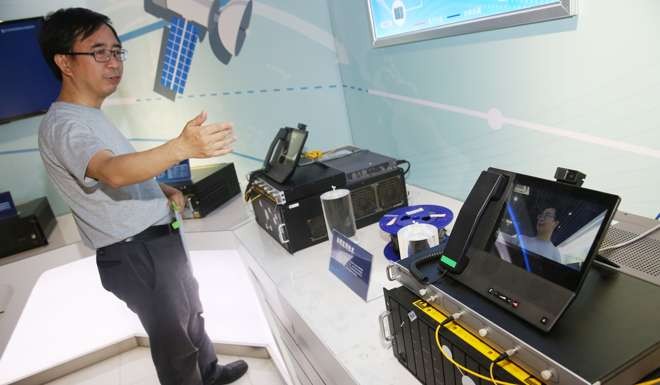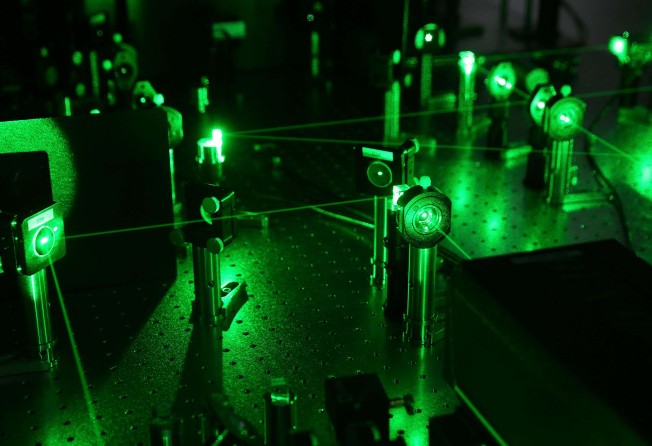
Canadian researchers claim Chinese quantum network might not be hack proof after all
University of Ottawa physicists say they’ve found a way to partially replicate data from supposedly completely secure system

Canadian researchers said they have found a way to partially replicate data from the highly secured quantum network, which could serve as an alarm for their Chinese counterparts who are spearheading a state-of-the-art hack-proof communications system.
A hacker could use the technology to intercept encrypted information transmitted in a quantum communication line, previously thought to be perfectly secure, according to their paper published on Friday in the journal Science Advances.
China is constructing the world’s largest and most sophisticated quantum network. The multibillion yuan facility consisting of the world’s first quantum satellite and longest ground network connecting Beijing and Shanghai, with plans to expand to other cities.
A quantum data network is built upon a fundamental law of physics that any third-party attempt to read information encoded in quantum bits would change the original copy, so the data cannot be cloned.
The Canadian team led by Professor Ebrahim Karimi at the University of Ottawa said they found a feasible method to bypass the quantum check.

The quantum system cannot be cloned perfectly, but can be cloned optimally. The latter means that some portion of the quantum state can be read,” he wrote in an email response to SCMP’s queries.
“We’re building such a machine,” Karimi added.
Their high-dimensional quantum cloning machine was capable of making replicas of the original information with accuracy ranging from 50 to 83 per cent, thus capable of intercepting a secure quantum message.
But some Chinese researchers said it was premature to say if their quantum network technology was under imminent threat.
“I don’t think the Canadian machine can hack. If it did, the world of physics would collapse,” said a mainland quantum physicist who did not want to be named due to the sensitivity of the project.
Another scientist who participated in the construction of the Chinese quantum network said the Canadian findings had yet to have practical value.
“The replica’s similarity must be 90 per cent or higher, otherwise it will remain a mess containing little useful information,” he said, adding that cloning would introduce disturbance to the system and be notice by the network manager.
Karimi admitted his machine was imperfect and eavesdropping would generate noticeable noise.
But their findings suggested room for improvement on quantum network security. For instance, encoding information in more quantum bits could significantly reduce the chance of being hacked.
“Our research helps to improve and find a way if the network is under attack or not,” Karimi said.
“Any attack will introduce an error in the transmitted data, thus monitoring the error and putting a (mathematical) bound on it will help in having a safer channel.”